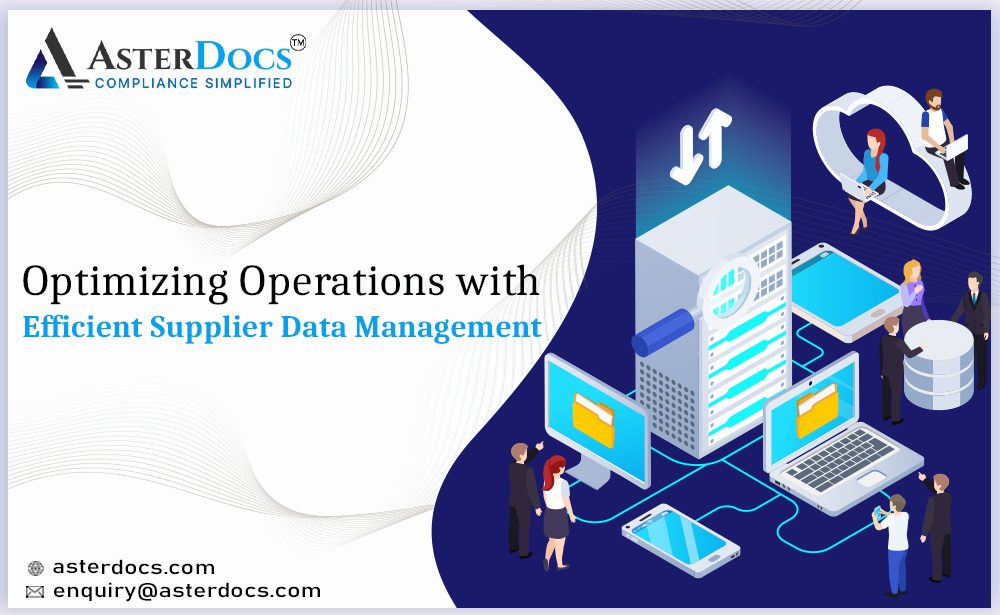In the fast-paced world of nutraceutical, dietary, beauty, and wellness industries, efficient supplier data management is essential for optimizing operations and achieving business success.
With a large network of suppliers and a plethora of data to handle, organizations often face challenges in organizing, accessing, and utilizing supplier data effectively.
This blog explores the significance of supplier data management and how it can transform chaotic processes into streamlined operations, driving efficiency and ensuring success.
The Challenges of Supplier Data Management
Managing supplier data can be a daunting task, especially when dealing with multiple suppliers, various data formats, and frequent updates.
Inconsistent data scattered across different systems or spreadsheets can lead to errors, delays, and miscommunication.
Lack of centralization makes it difficult to have a holistic view of supplier information, hindering effective decision-making. Additionally, data security concerns and the need for data analysis pose additional challenges for organizations.
The Benefits of Streamlined Supplier Data Management
Streamlining supplier data brings numerous benefits to organizations. By establishing a centralized repository for supplier data, businesses can ensure data accuracy, improve data integrity, and maintain up-to-date information.
Having a single source of truth enables better decision-making, as stakeholders can access accurate and real-time supplier information.
Streamlined data management also enhances operational efficiency, enabling faster response times, smoother collaboration with suppliers, and improved supply chain visibility.
Furthermore, it reduces risks associated with non-compliance or inadequate quality control by ensuring that supplier data is complete, accurate, and aligned with regulatory requirements.
Strategies for Effective Data Management
To transform supplier data chaos into order, businesses need to implement effective strategies.
Establishing clear data governance policies and guidelines is crucial to ensure data consistency, standardization, and integrity. Implementing standardized data formats and templates simplifies data collection and improves data quality.
Regular data audits help identify and rectify data inconsistencies and errors. Leveraging data integration tools and automation streamlines data validation, cleansing, and synchronization processes.
Promoting data transparency and accountability fosters trust among stakeholders and enables effective collaboration with suppliers.
The Role of Technology in Data Management
Technology plays a crucial role in enabling efficient data management.
Advanced data management systems and supplier management platforms provide the following:
- Necessary tools and functionalities to streamline data collection
- Centralize data storage
- Automate data validation and cleansing processes
- Provide real-time insights through interactive dashboards and reports
These technologies eliminate manual and time-consuming tasks, reduce human errors, and enhance data accuracy and accessibility.
With intuitive user interfaces and customizable features, technology solutions make it easier for organizations to manage supplier data effectively and derive valuable insights.
How Supplier Data Management Platforms Optimize Operations
Supplier data management platforms offer a comprehensive solution for optimizing operations in the nutraceutical, dietary, beauty, and wellness industries.
These platforms provide features such as centralized data repositories, automated data validation and synchronization, customizable data templates, and real-time reporting.
By leveraging such platforms, organizations can streamline data collection, ensure data accuracy and integrity, and improve supplier collaboration.
Real-time insights and analytics enable data-driven decision-making, supply chain optimization, and risk mitigation.
Data management platforms empower organizations to make informed decisions, enhance operational efficiency, and stay ahead in a competitive market.
Conclusion
Effective supplier data management is a game-changer for the nutraceutical, dietary, beauty, and wellness industries.
By transforming chaotic data processes into streamlined operations, businesses can unlock numerous benefits, improve decision-making, and drive operational efficiency.
Embracing advanced technology solutions and implementing best practices in data management will position organizations at the forefront of the industry, enabling them to thrive in a competitive market.













